 science DigitalisationViolence against women in today’s society: how Communication Science students work towards a better futureThe Gisèle Pelicot case, the new Netflix series Adolescence, and the harmful effects of misogynistic influencers like Andrew Tate – violence against women is getting more traction in traditional media than ever before. Sadly, though, this increased awareness does not automatically translate into progress; globally, almost one in three women has experienced physical and/or sexual violence at least once in their lives*. That’s why, as part of their project, Communication Science students Carly, Ioanna, Leonie, and Nancy dove into the complex problem of violence against women in modern society.
science DigitalisationViolence against women in today’s society: how Communication Science students work towards a better futureThe Gisèle Pelicot case, the new Netflix series Adolescence, and the harmful effects of misogynistic influencers like Andrew Tate – violence against women is getting more traction in traditional media than ever before. Sadly, though, this increased awareness does not automatically translate into progress; globally, almost one in three women has experienced physical and/or sexual violence at least once in their lives*. That’s why, as part of their project, Communication Science students Carly, Ioanna, Leonie, and Nancy dove into the complex problem of violence against women in modern society.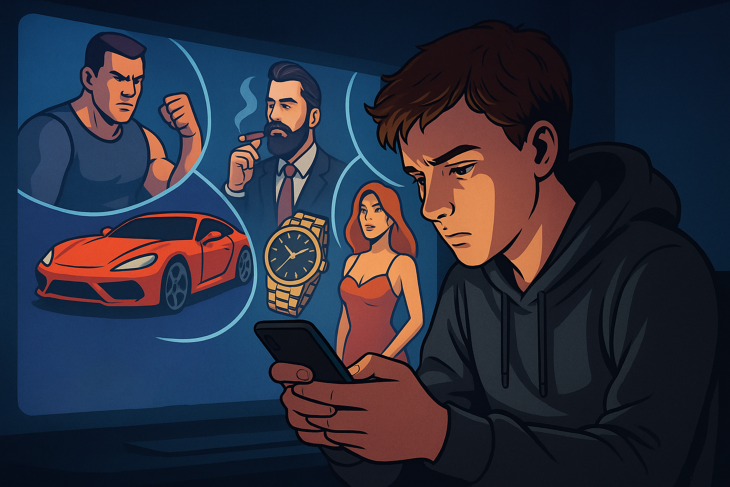 science DigitalisationThe manosphere unmasked: How online cultures entangle young people in extreme ideasImagine this: you’re scrolling through TikTok, watching a few videos, and before you know it, you're caught in an endless stream of clips featuring men who claim to reveal how the world really works. Men who present themselves as strong and successful, surrounded by luxury cars, cigars, and bold opinions. For a moment, it might feel like they truly understand you. Like they’re offering a truth the rest of the world refuses to see. That’s the appeal of the manosphere: an online subculture where traditional ideas about masculinity, power, and women are repackaged into flashy, persuasive content.
science DigitalisationThe manosphere unmasked: How online cultures entangle young people in extreme ideasImagine this: you’re scrolling through TikTok, watching a few videos, and before you know it, you're caught in an endless stream of clips featuring men who claim to reveal how the world really works. Men who present themselves as strong and successful, surrounded by luxury cars, cigars, and bold opinions. For a moment, it might feel like they truly understand you. Like they’re offering a truth the rest of the world refuses to see. That’s the appeal of the manosphere: an online subculture where traditional ideas about masculinity, power, and women are repackaged into flashy, persuasive content.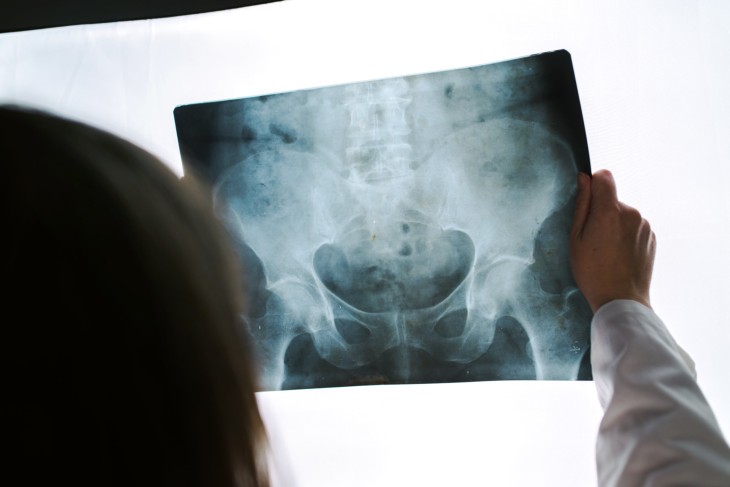 science HealthDeveloping AI that doctors can trustAI helps clinicians quickly find the information they need, filtering hundreds of reports and documents, automating processes, and preventing something from being overlooked. But traditional AI isn't safe enough when it comes to high-level tasks, such as diagnosing. Here, explainability is crucial. Unlike non-explainable models that operate like black boxes, explainable AI follows a clinically acceptable reasoning and reveals how it arrives at a decision, so doctors can evaluate whether its output is trustworthy.
science HealthDeveloping AI that doctors can trustAI helps clinicians quickly find the information they need, filtering hundreds of reports and documents, automating processes, and preventing something from being overlooked. But traditional AI isn't safe enough when it comes to high-level tasks, such as diagnosing. Here, explainability is crucial. Unlike non-explainable models that operate like black boxes, explainable AI follows a clinically acceptable reasoning and reveals how it arrives at a decision, so doctors can evaluate whether its output is trustworthy.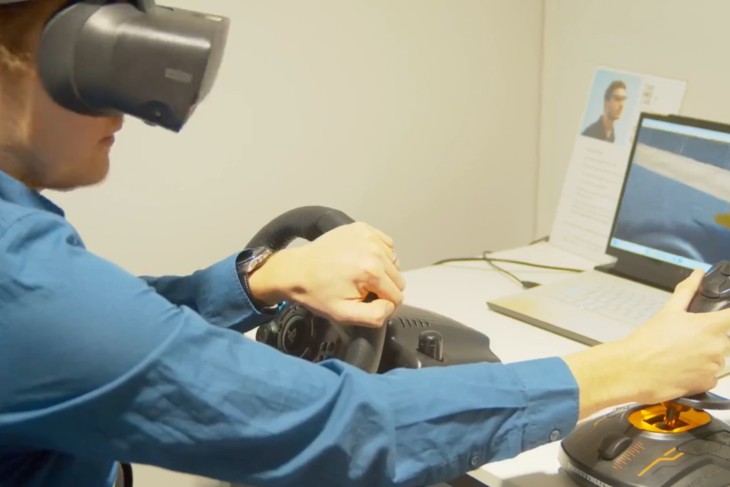 science DigitalisationKees Study: Can Kees drive an asphalt roller?What happens when you let someone with no experience drive a rolling machine? In this episode of Kees Study, Kees explores how people learn new skills with technology.
science DigitalisationKees Study: Can Kees drive an asphalt roller?What happens when you let someone with no experience drive a rolling machine? In this episode of Kees Study, Kees explores how people learn new skills with technology.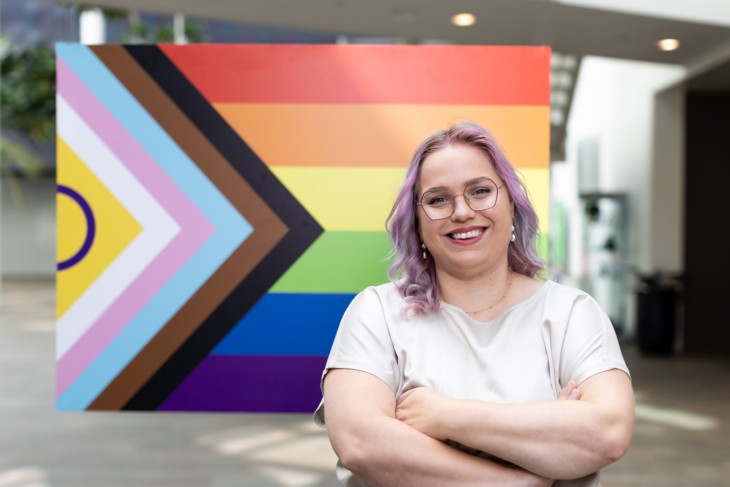 science HealthHow digital technology can support vulnerable groupsYou are young, struggling with your identity, and feel misunderstood by those around you. When you finally take the step to seek help, you find yourself on a two-year waiting list. In the meantime? Little to no support. For many LGBTQ young people, this is not a fictional scenario, but the harsh reality. The healthcare system is stuck: GPs are at a loss and psychological care is overloaded. But what if digital technology can play a role in this?
science HealthHow digital technology can support vulnerable groupsYou are young, struggling with your identity, and feel misunderstood by those around you. When you finally take the step to seek help, you find yourself on a two-year waiting list. In the meantime? Little to no support. For many LGBTQ young people, this is not a fictional scenario, but the harsh reality. The healthcare system is stuck: GPs are at a loss and psychological care is overloaded. But what if digital technology can play a role in this?
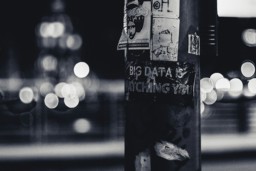 science DigitalisationHow Big Tech is weaponising public opinionPropaganda used to be distributed through leaflets or broadcast over the radio. Today, it reaches us with a click on our smartphones, and it is tailored to our preferences. The way we consume information has changed - and with it, the way we form our beliefs about political and social institutions. Assistant professor Adam Heschke is worried about what comes next.
science DigitalisationHow Big Tech is weaponising public opinionPropaganda used to be distributed through leaflets or broadcast over the radio. Today, it reaches us with a click on our smartphones, and it is tailored to our preferences. The way we consume information has changed - and with it, the way we form our beliefs about political and social institutions. Assistant professor Adam Heschke is worried about what comes next.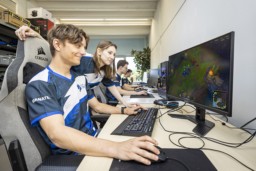 science TechnologyFive reasons why playing games is actually good for youThere is no way around it: gaming is the largest entertainment industry in the world. Ask any concerned parent what they think of digital games, though, and the answers paint a picture of addictive, isolating, and violent time-wasters. How could such horrible things draw in billions of players?
science TechnologyFive reasons why playing games is actually good for youThere is no way around it: gaming is the largest entertainment industry in the world. Ask any concerned parent what they think of digital games, though, and the answers paint a picture of addictive, isolating, and violent time-wasters. How could such horrible things draw in billions of players?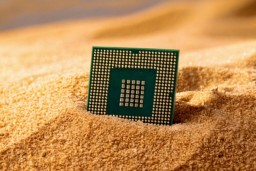 science Chip TechnologyFrom sand to smartphoneThe smartphone in your pocket and other electronic devices are packed with microchips. With a huge demand for smartphones, computers, and other smart technologies, there is a global shortage of these chips. Production processes simply cannot keep pace with the immense demand. But why does making a computer chip take so long?
science Chip TechnologyFrom sand to smartphoneThe smartphone in your pocket and other electronic devices are packed with microchips. With a huge demand for smartphones, computers, and other smart technologies, there is a global shortage of these chips. Production processes simply cannot keep pace with the immense demand. But why does making a computer chip take so long?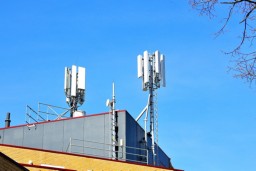 science DigitalisationHow your mobile internet could be much betterImagine: you’re at a festival, and your phone always has full signal. No more slow internet or apps that won’t load. Sounds like a dream, right? Lotte Weedage, a PhD candidate at the University of Twente, is researching ways to improve the mobile network in the Netherlands, so this could become a reality.
science DigitalisationHow your mobile internet could be much betterImagine: you’re at a festival, and your phone always has full signal. No more slow internet or apps that won’t load. Sounds like a dream, right? Lotte Weedage, a PhD candidate at the University of Twente, is researching ways to improve the mobile network in the Netherlands, so this could become a reality.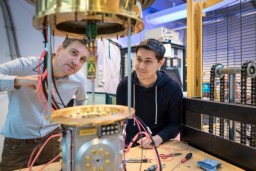 science Chip TechnologyOur tech is a huge energy guzzler, here's how we're changing itIf we continue like this, ICT applications will account for no less than twenty percent of our total electricity consumption by 2030. Data centers, AI, the many millions of questions we ask Google every day... It takes an enormous amount of computing power and therefore energy. This can and must change, agrees Professor Wilfred van der Wiel of the University of Twente.
science Chip TechnologyOur tech is a huge energy guzzler, here's how we're changing itIf we continue like this, ICT applications will account for no less than twenty percent of our total electricity consumption by 2030. Data centers, AI, the many millions of questions we ask Google every day... It takes an enormous amount of computing power and therefore energy. This can and must change, agrees Professor Wilfred van der Wiel of the University of Twente.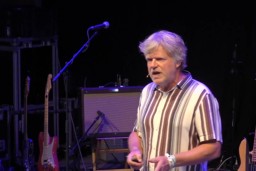 science Chip TechnologyMini-lectures Zwarte Cross, episode 3: Chips, digital tastemakers from Dutch soilThe Universitent at the Zwarte Cross, the largest festival in the Netherlands, has been a successful concept for years. In this summer series you can watch the mini-lectures again. In episode 3, Guus Rijnders talks about computer chips.
science Chip TechnologyMini-lectures Zwarte Cross, episode 3: Chips, digital tastemakers from Dutch soilThe Universitent at the Zwarte Cross, the largest festival in the Netherlands, has been a successful concept for years. In this summer series you can watch the mini-lectures again. In episode 3, Guus Rijnders talks about computer chips. student BachelorDoes screen time impact your lifestyle and health? Creative Technology students show you how!Most people know that spending too much time on your phone can negatively affect your mental health. Yet here we are – often chronically online and spending most of our (free) time on screens, with all its consequences. That’s why student Creative Technology Nina and her project group decided to create an interactive installation for people to reflect on their screen time and happiness. In this article, she talks all about their work and its importance in today’s society.
student BachelorDoes screen time impact your lifestyle and health? Creative Technology students show you how!Most people know that spending too much time on your phone can negatively affect your mental health. Yet here we are – often chronically online and spending most of our (free) time on screens, with all its consequences. That’s why student Creative Technology Nina and her project group decided to create an interactive installation for people to reflect on their screen time and happiness. In this article, she talks all about their work and its importance in today’s society. science DigitalisationMini-lectures Zwarte Cross, episode 1: Beer and IT, is it a good idea? (video in Dutch)The Universitent at Zwarte Cross, the biggest festival in the Netherlands, has been a successful concept for years. In this summer series, you can revisit the mini-lectures. In episode 1, Dr Ton Spil talks about beer and IT.
science DigitalisationMini-lectures Zwarte Cross, episode 1: Beer and IT, is it a good idea? (video in Dutch)The Universitent at Zwarte Cross, the biggest festival in the Netherlands, has been a successful concept for years. In this summer series, you can revisit the mini-lectures. In episode 1, Dr Ton Spil talks about beer and IT.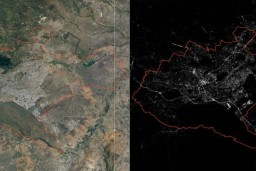 science TechnologyHow satellites expose urban inequalities in the Global SouthMass evictions, daily power outages, and pitch-black streets at night: the challenges that people in the Global South face remain largely overlooked. How can satellite imagery uncover the hidden realities of urbanisation? Prof. Dr. Monika Kuffer’s research strives to spotlight urban inequalities and prompt policymakers to take action.
science TechnologyHow satellites expose urban inequalities in the Global SouthMass evictions, daily power outages, and pitch-black streets at night: the challenges that people in the Global South face remain largely overlooked. How can satellite imagery uncover the hidden realities of urbanisation? Prof. Dr. Monika Kuffer’s research strives to spotlight urban inequalities and prompt policymakers to take action.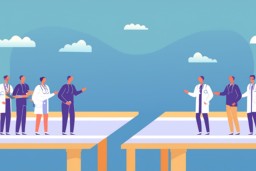 science HealthBeyond borders: this is the future of specialist careEnsuring access to specialist care at peak periods is challenging, especially in sparsely populated areas with fewer available healthcare specialists. Project BRIDGE tries to tackle this issue in an unconventional way: hospitals in the German-Dutch border region are joining forces to share healthcare personnel. As simple as this sounds, is it so in practice?
science HealthBeyond borders: this is the future of specialist careEnsuring access to specialist care at peak periods is challenging, especially in sparsely populated areas with fewer available healthcare specialists. Project BRIDGE tries to tackle this issue in an unconventional way: hospitals in the German-Dutch border region are joining forces to share healthcare personnel. As simple as this sounds, is it so in practice?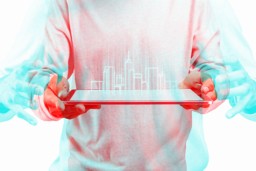 science DigitalisationHow Digital Twin Cities are Shaping TomorrowMost of us have done it, walking through familiar streets or looking at your own house with a street view service. Now imagine doing this with a complete virtual replica. Every street, every car, every person walking to their work is meticulously simulated. This is a city digital twin. Discover how researchers at the Digital Twin Geohub of the University of Twente are transforming urban planning – one virtual city at a time.
science DigitalisationHow Digital Twin Cities are Shaping TomorrowMost of us have done it, walking through familiar streets or looking at your own house with a street view service. Now imagine doing this with a complete virtual replica. Every street, every car, every person walking to their work is meticulously simulated. This is a city digital twin. Discover how researchers at the Digital Twin Geohub of the University of Twente are transforming urban planning – one virtual city at a time. science DigitalisationHow digitalisation is exacerbating social inequalityWe live in a world where almost everyone is online. The internet is a near-endless source of information, a space where we keep in contact with loved ones and where we work and consume. But what if you do not have access to the internet, because of a lack of motivation, skills, or don’t have a computer? Digital inequality increases the social gap between people and can even lead to exclusion. Alexander van Deursen, professor of communication science at the University of Twente, is investigating how digital inequality arises and how we can combat it.
science DigitalisationHow digitalisation is exacerbating social inequalityWe live in a world where almost everyone is online. The internet is a near-endless source of information, a space where we keep in contact with loved ones and where we work and consume. But what if you do not have access to the internet, because of a lack of motivation, skills, or don’t have a computer? Digital inequality increases the social gap between people and can even lead to exclusion. Alexander van Deursen, professor of communication science at the University of Twente, is investigating how digital inequality arises and how we can combat it.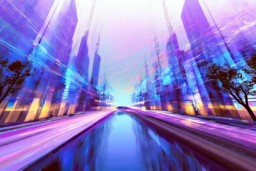 science DigitalisationCities are cloned in the virtual world to transform urban planningBy 2050, nearly 70% of the world's population will live in cities1. Urban planning decisions made today have a critical impact on the future, which means there is less room for trial and error. How can we address the increase in urban populations and make future cities more sustainable?
science DigitalisationCities are cloned in the virtual world to transform urban planningBy 2050, nearly 70% of the world's population will live in cities1. Urban planning decisions made today have a critical impact on the future, which means there is less room for trial and error. How can we address the increase in urban populations and make future cities more sustainable?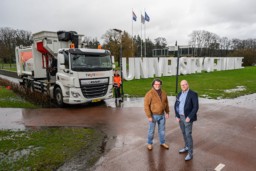 science DigitalisationIdeal route for rubbish truck thanks to smart algorithmEvery resident of Twente knows them: the trucks of waste collector Twente Milieu driving through the streets to empty the green, orange or grey minicontainer. To ensure that the rubbish trucks empty the five million minicontainers annually as efficiently as possible, perfect route planning is needed.
science DigitalisationIdeal route for rubbish truck thanks to smart algorithmEvery resident of Twente knows them: the trucks of waste collector Twente Milieu driving through the streets to empty the green, orange or grey minicontainer. To ensure that the rubbish trucks empty the five million minicontainers annually as efficiently as possible, perfect route planning is needed.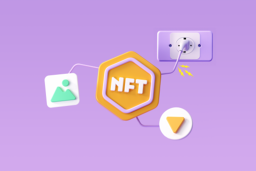 science DigitalisationThe pollution of our digital worldBitcoin, non-fungible tokens (NFTs), and other popular blockchain innovations represent our shift to a digital society. But this transition comes at a cost. The emissions generated by these blockchain technologies from the year 2021 alone are responsible for around 19,000 future deaths. This alarming statistic raises many questions: How is this possible and what can we do about it?
science DigitalisationThe pollution of our digital worldBitcoin, non-fungible tokens (NFTs), and other popular blockchain innovations represent our shift to a digital society. But this transition comes at a cost. The emissions generated by these blockchain technologies from the year 2021 alone are responsible for around 19,000 future deaths. This alarming statistic raises many questions: How is this possible and what can we do about it?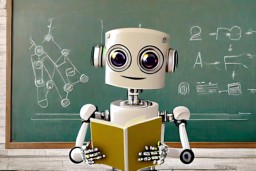 science DigitalisationThe classroom of the future: will we be taught by AI?In a world where technologies such as artificial intelligence (AI) are developing rapidly, the question arises: will AI be our next teacher? Imagine lecture halls filled with chatbots, robots and holograms giving lectures. Sounds like something out of a science fiction movie, right? Yet this scenario is less far-fetched than it seems, given the speed at which AI is developing. But according to Kim Schildkamp, professor at the University of Twente's ELAN teacher training programme, these technologies will never completely replace our teachers because human relationships are far too important in the classroom.
science DigitalisationThe classroom of the future: will we be taught by AI?In a world where technologies such as artificial intelligence (AI) are developing rapidly, the question arises: will AI be our next teacher? Imagine lecture halls filled with chatbots, robots and holograms giving lectures. Sounds like something out of a science fiction movie, right? Yet this scenario is less far-fetched than it seems, given the speed at which AI is developing. But according to Kim Schildkamp, professor at the University of Twente's ELAN teacher training programme, these technologies will never completely replace our teachers because human relationships are far too important in the classroom.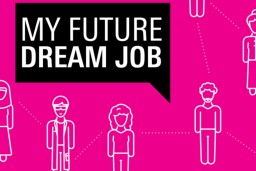 science TechnologyPodcast #4: The data security detanglerExplore the future in our podcast series, "My Future Dream Job," where Anic van Damme guides you to the year 2030. Our scientists explore prospective careers in cybersecurity, climate adaptation, and energy transition. Listen in to gain insights into the professions taking shape at the University of Twente.
science TechnologyPodcast #4: The data security detanglerExplore the future in our podcast series, "My Future Dream Job," where Anic van Damme guides you to the year 2030. Our scientists explore prospective careers in cybersecurity, climate adaptation, and energy transition. Listen in to gain insights into the professions taking shape at the University of Twente. science DigitalisationPodcast #1: The human-machine interaction expertExplore the future in our podcast series, "My Future Dream Job," where Anic van Damme guides you to the year 2030. Our scientists explore prospective careers in cybersecurity, climate adaptation, and energy transition. Listen in to gain insights into the professions taking shape at the University of Twente.
science DigitalisationPodcast #1: The human-machine interaction expertExplore the future in our podcast series, "My Future Dream Job," where Anic van Damme guides you to the year 2030. Our scientists explore prospective careers in cybersecurity, climate adaptation, and energy transition. Listen in to gain insights into the professions taking shape at the University of Twente. science RoboticsThe future of work: robots as colleagues?The labour market is under pressure. From the busy airports of Schiphol to the hectic hospital corridors, there's a huge shortage of staff everywhere. Perhaps you've already noticed the effects yourself. Restaurants operate with fewer staff, leading to longer waiting times for your food. Classrooms are fuller due to the lack of teachers or masters. And your parcels? Those take longer to arrive because of understaffed delivery services. Even buses and trains are less frequent on the roads and tracks.
science RoboticsThe future of work: robots as colleagues?The labour market is under pressure. From the busy airports of Schiphol to the hectic hospital corridors, there's a huge shortage of staff everywhere. Perhaps you've already noticed the effects yourself. Restaurants operate with fewer staff, leading to longer waiting times for your food. Classrooms are fuller due to the lack of teachers or masters. And your parcels? Those take longer to arrive because of understaffed delivery services. Even buses and trains are less frequent on the roads and tracks.